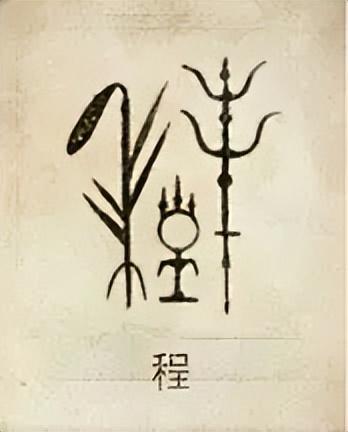The Cheng(chéng) surname, meaning "measurement standard" in Chinese, represents both cultural continuity and ethical benchmarks. This ancient surname carries stories of sacrificial loyalty, philosophical revolutions, and cross-cultural fusion – a perfect window to understanding Chinese civilization.

Ⅰ、Surname origin
1. The true line of the wind: the national surname inheritance of the descendants of the fire god
The oldest origin of the Cheng surname can be traced back to the ancient Five Emperors period. Zhongli, the great-grandson of Zhxu, was enfeoffed as Zhurong for his management of the fire kindling, and his descendants established the Cheng state (present-day Luoy, Henan) during the Shang Dynasty, taking the state name as their surname.
2. Aristocratic Branches
A Zhou royal clan (descendants of King Wen) took the name after being enfeoffed at Cheng (modern Xinjiang, Shanxi) during the Spring and Autumn Period (771–476 BCE).
3. Ethnic Integration
Northern Wei Reforms (386–534 CE): Xianbei nomads adopted "Cheng" during Sinicization.
Qing Dynasty Adaptation: Manchu "Chengjia" clan simplified to Cheng, exemplifying cultural blending.
Ⅱ、Historical celebrities:
1. A millennium example of loyalty and righteousness;
Cheng Ying (6th century BCE): A righteous man of the Spring and Autumn Period of Jin, famous for the story of "The Orphan of Zhao", his spirit of sacrificing his life righteousness has become a symbol of Confucian loyalty and righteousness.
Cheng Pu (3rd century CE): Sun Quan's trusted general during the Three Kingdoms era, famed for naval strategies at the Battle of Red Cliffs.
2. Philosophical Revolutionaries
Cheng Hao & Cheng Yi (11th century CE): Neo-Confucianism founders who redefined ethics with "Preserve heavenly principles, refine human desires". Their "Snow at Cheng's Door" story symbolizes scholarly dedication.
3. Innovators Across Ages
Cheng Miao (3rd century BCE): Transformed Chinese writing by creating clerical script – precursor to modern characters.
Cheng Yanqiu (1904–1958) revolutionized Peking Opera with his melancholic "Cheng School" singing style.
Cheng Kaijia (1918–2018): Nuclear physicist pivotal to China's first atomic bomb (1964), later advocating for nuclear disarmament.
Chen Maolan (Modern): Astrophysicist, one of the founders of modern Chinese astronomy.
Ⅲ、Cultural significance
1. Ancestral Hall
Shizhong Hall: Honors military hero Cheng Lingxi's "Loyalty to Country" ethos.
Lixue Hall: Commemorates students standing in snow to learn from Cheng brothers, embodying educational devotion.
2. The "Cheng" Metaphor
Originally meaning "standard measurement", it evolved to represent moral benchmarks like "Integrity as solid as metal and stone".
Ⅳ、Social impact
1. Historical Diaspora
Ancient Era: Spread from Henan to Sichuan along the Yangtze River.
Medieval Waves: Southern Song refugees (12th century CE) established Anhui's Xin'an Cheng Clan.
Modern Exodus: 19th-century migrants carried the name to Southeast Asia and California's Gold Rush towns.
2. Contemporary Impact
Transportation: Cheng Xiaogang's high-speed rail innovations shrank China's vast distances.
Astronomy: Cheng Maolan (1913–1999) pioneered meteor studies, bridging ancient star lore with modern astrophysics.
Conclusion:
The Cheng surname isn't just genealogical records – it's China's cultural DNA decoded. From fire rituals that united Neolithic tribes to ethical systems that shaped East Asia, its 3,000-year saga mirrors how Chinese civilization absorbed diverse influences while maintaining core values.